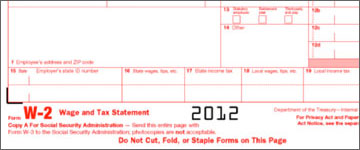Tax Advantages of Getting Married

Marriage can help reduce the tax burden for married couples who file jointly. Depending on the incomes, so-called "marriage penalties" can be avoided. If the taxpaying spouses have substantially different salaries, the lower salary can pull the higher salary down into a lower bracket, reducing the couple's overall taxes.
There are many good reasons to get married — true love and compatibility being among the best. No one would suggest that you tie the knot simply to acquire the tax blessings of the Internal Revenue Service. But the tax code does provide a few wedding gifts to those who say “I do.”
Kevin O’Brien, who formerly taught in the School of Accountancy graduate program at the University of Denver; certified public accountant Libby Fay of Denver; and Valerie Antonioli, a certified financial planner and investment adviser for Cherry Hills Investment Advisors LLC of Denver, offered tips for making the extended honeymoon a little sweeter when you prepare your tax return.
— Kevin O'Brien
For years, taxpayers complained about the marriage penalty. This penalty occurred when a husband and wife earned similar salaries, the combination of which pushed the couple into a higher tax bracket than they would have occupied if they were still single. Congress took steps to reduce that penalty, ensuring that the joint tax bill for married couples remains closer to the combined total they would have owed as single taxpayers, Antonioli said. Depending on the incomes, there still can be a marriage penalty. But if the taxpaying spouses have substantially different salaries, the lower salary can pull the higher salary down into a lower bracket, reducing the couple's overall taxes.
Typically, of course, both spouses would prefer to have good incomes, but if one person has a substantial income and marries someone who makes little or no money, “that’s golden, as far as getting some tax benefits,” said O’Brien, who now is the chairman of the Business Ethics and Legal Studies Department at the University of Denver's Daniels College of Business.
Your spouse may be a tax shelter
While O’Brien doesn’t advise anyone to seek out a partner specifically because he or she has a business that’s losing money, it's worth noting that the negative numbers of one person in a marriage can help both spouses. The spouse who’s losing money may not take advantage of some deductions, including those dealing with the house, but the spouse who’s making money may use the loss as a tax write-off. “This is also true of high medical expenses,” O’Brien said.
A JOBLESS spouse can have an IRA
A spouse may contribute to an individual retirement account (IRA) even if he or she doesn’t work. Additionally, Antonioli said, the point at which the IRA benefits are phased out based on income are dramatically higher for married couples than they are for single people.
"A taxpayer who couldn’t pay into an IRA when single can use the joint income to fund one and potentially put away thousands of dollars for retirement while receiving substantial tax benefits," O’Brien said.
Couples may "benefit-shop"
If both spouses have benefit packages from their jobs, they can pick the most valuable benefits from the two plans, Antonioli said. So, for example, if the husband can have pre-tax money deposited in an IRA which means that the deposit reduces his taxable income, and the wife can’t, they can put family money into an IRA for her, too.
The right mixture of benefits from two plans can increase a couple’s tax savings in other ways. Fay mentioned child care as an example. “If they have dependent children, they can benefit from using benefit plans such as dependent care plans,” Fay said. “It is frequently the case that one of them may not have such a plan but the other one does.”
A married couple can get greater charitable contribution deductions
There’s a limit to the charitable contributions that may be deducted in a year, based on income. Having a spouse can raise that limit, Fay said. “If one of them makes very large charitable contributions but doesn't have income of at least double that amount, the excess contributions are carried over [deducted the following year],” she noted. “In a jointly filed return, they can use the spouse's income in determining the currently deductible amount. So they save current taxes.”
Marriage can protect the estate
Being married can help a wealthy person protect the assets he or she leaves behind at death. Under federal tax laws, you can leave any amount of money to a spouse without generating estate tax, so this exemption protects the deceased’s estate until the spouse dies.
Filing can take less time and expense
This one is simple. If the husband and wife have to file just one tax return, there’s a good chance that it will take less time to assemble the paperwork — at least for the one who's not doing the taxes — and cost less to have it prepared.
Tax downsides to marriage
There are tax benefits to nuptials, but some drawbacks exist as well. They don’t mean you shouldn’t get hitched. Just consider them unwelcome gifts, along with that third toaster oven and that cheap fondue set.
First, once you sign the joint return, you are fully responsible for every number that’s in it. If your spouse fudges a figure, you’re equally liable for the consequences. The University of Denver’s Kevin O’Brien noted that you aren’t responsible for your spouse’s mistakes or deliberate omissions if they happened in years before you married or if you can prove that you didn’t know about them.
Also, it might be harder to reach the higher minimum percentages of income necessary to be able to deduct medical or miscellaneous expenses, given the combined income, unless one or both of you had significant expenses. And finally, if there’s a garnishment for an unpaid loan or child support against a spouse, a refund could be delayed or blocked, O'Brien said.
How to Get All of the Tax Deductions Possible When Filing
Watch this TurboTax Tips video to find out!
What is a W-2 Form?
A W-2 form shows the amount of taxes withheld from your paycheck for the year and is used to file your federal and state taxes. Here are the basics.

